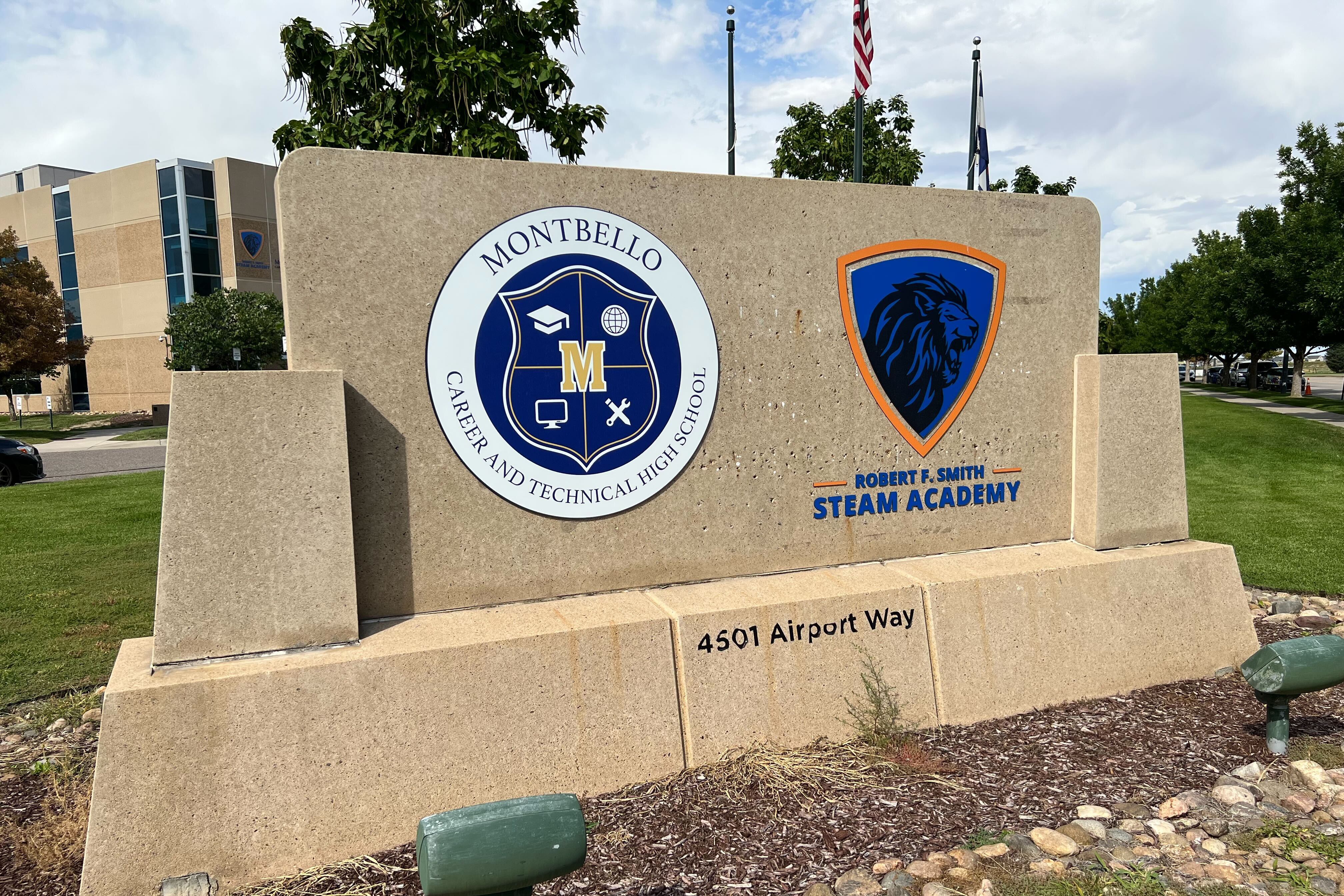Denver Public Schools won’t close Montbello Career and Technical High School after Superintendent Alex Marrero changed his recommendation.
The Denver board room erupted in applause and cheers Thursday evening when Marrero announced via a video call that he was not recommending closing the small alternative school.
District leaders had recommended closing Montbello Career and Technical High School, which serves students at risk of dropping out, so that an HBCU-style high school called Robert F. Smith STEAM Academy can grow. The two schools share an office building location in northeast Denver.
MCT has been in the building longer and serves about 70 students, most of whom are on track to graduate. The school also offers the only automotive program in northeast Denver and has a strong track record of placing students in good-paying jobs.
Students and teachers at MCT gave emotional testimony Monday asking the district not to close their school, and Smith STEAM Academy families said they don’t want to stay in an office building that doesn’t have a library, a kitchen to cook hot meals on site, or a regulation-size gym.
It was clear on Thursday that the decision had already been in doubt.
Board member Michelle Quattlebaum, who represents northeast Denver and whose children experienced the closure of Smiley Middle School, fought back tears as she addressed students and staff crowded into the board chambers.
“It took some time, but I promised you I would work on this,” she said. “Thank you for being patient.”
Board member Auon’tai Anderson said students and teachers should not have been placed in fear their school would close or made to go through a public performance, only to learn at the last minute that their school would be spared.
He said he was disturbed that two schools that serve Black and brown students were pitted against each other, and he said the district needs to develop better processes so this doesn’t happen again.
Board member Scott Esserman praised Marrero for being willing to listen and reconsider his decision. He said he left a visit at MCT deeply impressed and convinced the school does far too much good for its students to be closed.
“We talk about dismantling oppressive systems,” Esserman said, a reference to Marrero’s goals for the district. “This is a step in that direction.”
Board members did not discuss on Thursday how they will make room for Smith STEAM Academy as it grows. The school serves about 135 ninth- and tenth-graders this year, and plans to add 11th and 12th grades over the next two years. However, the families want a real school building.
Marrero is expected to recommend a larger group of elementary school closures soon, as the district faces declining enrollment and small schools aren’t always able to provide robust programming.
Board member Carrie Olson noted her own experience teaching at a school that was closed and how she didn’t feel listened to — and how she felt like her school was in competition with other schools. Olson said the board needs to remember this process and work closely with communities when facing the next set of decisions.
Anderson asked Principal Arnetta Koger to stand.
“I want to thank you for being a Black female leader who didn’t give up on her kids, who didn’t give up on her community,” he said as students applauded.
Bureau Chief Erica Meltzer covers education policy and politics and oversees Chalkbeat Colorado’s education coverage. Contact Erica at emeltzer@chalkbeat.org.






